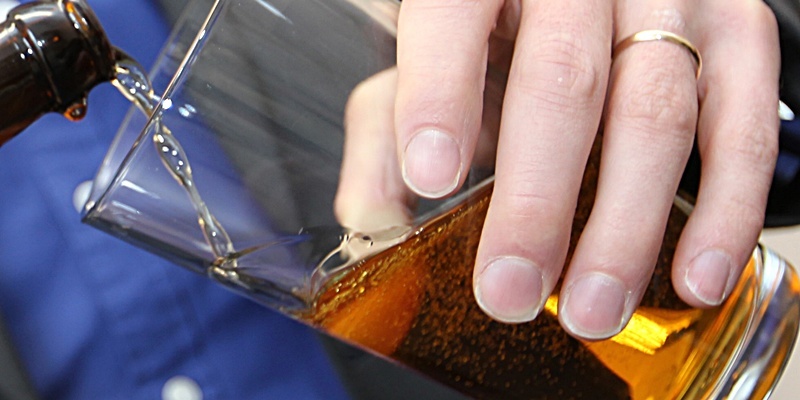A leading expert on alcohol abuse in Tayside has urged the new Scottish Government to introduce minimum pricing on drink just months after a previous attempt to do so was rejected.
Eric Knox, director of the Tayside Council on Alcohol, believes the newly-elected SNP Government should resurrect plans to place a minimum price on a unit of alcohol and make full use of the mandate granted to it by the Scottish electorate last week.
Alex Salmond’s administration would have more than sufficient muscle at Holyrood to vote the proposals through this time after opposition objections denied the nationalists the chance of implementing one of their key policies during the last parliament.
Eight months on, and with a vastly different political landscape in Scotland, Mr Knox believes the new SNP government must resume attempts to end the nation’s obsession with alcohol.
Asked if he would back a renewed effort for minimum pricing, he told The Courier, “I would support it 100%. It was something that we backed last time and if we look at what has happened down south then I think this would make a difference.
“It would have to be part of a national plan though. We cannot wait for people to have issues with alcohol and then have to give them support and counselling.”
The coalition government at Westminster recently unveiled proposals to ban shops and bars from selling alcohol priced lower than the tax paid on it. Effectively placing a base rate on alcoholic drinks, it means that a litre of vodka could retail for no less than £10.71, while weak lager could be no cheaper than 38p per can.
The proposals have been criticised for failing to significantly raise the price of cheap alcohol with retailers acknowledging that they already sell beer, wine and spirits above the levels suggested by the government.
Mr Knox said he would be keen to see Scotland go significantly further in its efforts to tackle attitudes towards drinking and believes the prospective model south of the border is not one that would work in this country.StandardDemanding that any effort be national government-led, he said, “I think that down south they went far too low with their pricing. We would fully support minimum pricing as long as it is consulted and implemented properly.
“But it has to be done correctly and at a national level, not through licensing boards. There needs to a common standard throughout the country.”
As the dust settles on the Scottish election result it remains too early to tell whether the SNP administration will attempt to introduce minimum pricing legislation, although strong support from police and medical circles in the past would make it highly probable given the strength of their majority at Holyrood.
Mr Knox believes placing a minimum price on a unit of alcohol is necessary to defeat what he describes as a “culture of alcohol” in Scotland.
“Irresponsible promotions in whatever area have to be tackled,” he added. “It’s so cheap to buy alcohol that people are buying it when maybe they normally wouldn’t.
“I think it’s been quoted before but it was said that it was cheaper to buy beer than a bottle of water. We have to tackle this thing where people are driven to a culture of alcohol.”
